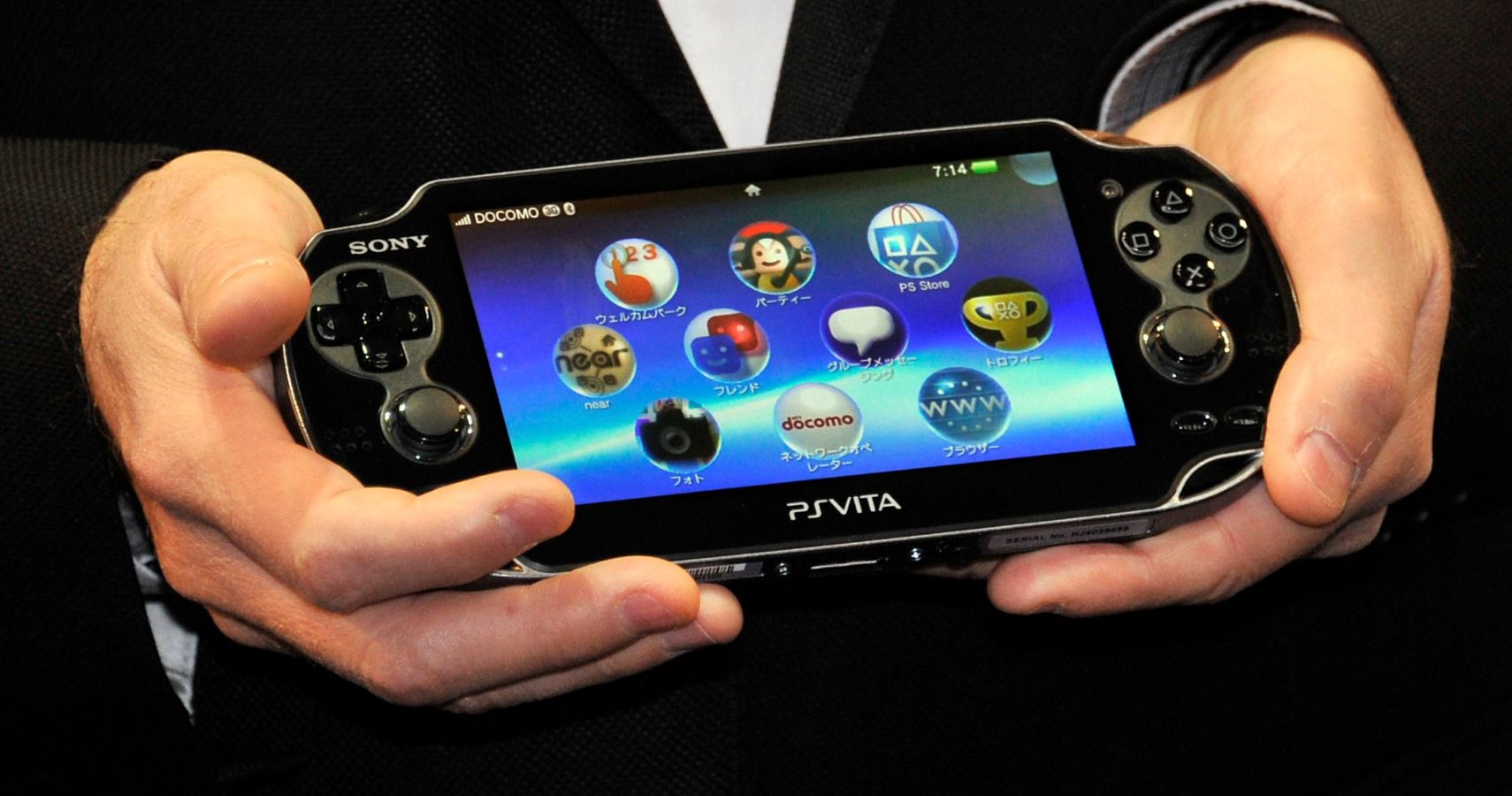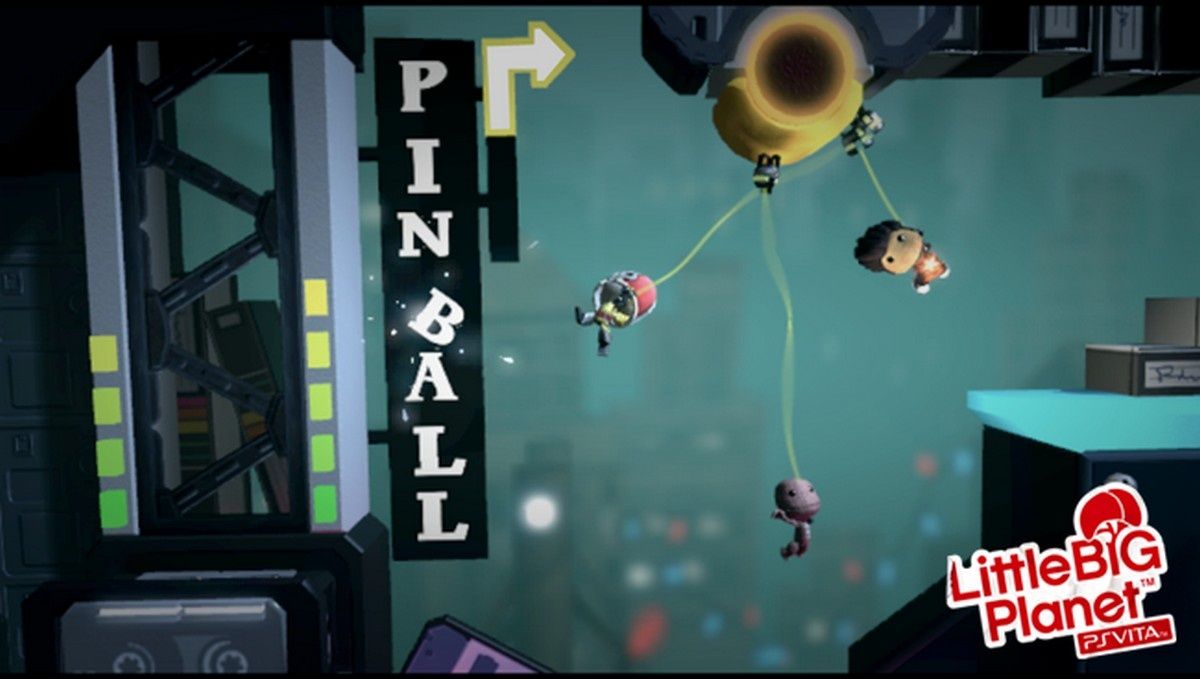“I think it's a real shame, to be honest,” a developer who worked on various big titles for PS Vita tells me. “We're at a point now where there shouldn't even be a discussion about game preservation.”
A week ago, we reported that Sony plans to close the PS3, PSP, and PS Vita stores. You can still download and play what you already bought, but once closed, the games listed on the stores won’t be purchasable anymore. Exclusives will be lost forever, and close to two decades of work will be Thanos-snapped out of existence in what’s seemingly a cost-saving exercise, without any consideration for the human cost.
I reached out to indie devs who are losing years of work and projected income, as well as some who are racing to beat the deadline to be one of the last Vita games through the pearly gates of Sony’s platform.
“[Change is] something that needs to happen at a publisher level, otherwise players looking to replay these games will have to acquire them from questionable sources instead of the console they're intended for,” the developer says, referencing the fact that piracy will be one of the only ways to access these games once the stores close. “By removing the legitimate option, publishers aren't leaving players with much choice. It's especially frustrating given how much effort Microsoft is putting into preserving [its] library and seeing great success with it.
“For me personally, it's also a somewhat sentimental moment. The Vita was home to the first games I ever worked on and it's always nice hearing from people who still play those games, or recently picked them up and are enjoying them for the first time. It's sad knowing that those games are a lot less likely to be discovered and enjoyed. I'll certainly be making sure I download them before they're lost to the ether.”
For many, the loss comes in the form of time.
German studio Behind the Stone released Sir Eatsalot, a 2D platformer for PS Vita, two years ago. Until recently, the game was exclusive to the platform. The studio predicted this change and decided to work on a Switch port because “the way Sony treated the device was telling”.
Sir Eatsalot was built from the ground up with Vita as the lead platform. The game was a “financial flop”, but the studio stayed afloat thanks to a limited physical release. Still, the Vita closure means three years of development time would have just been thrown away if not for the foresight to port to Switch - which is a non-trivial amount of work. Despite sensing the change, the developer found out about the store’s closure the same way most other people did: through TheGamer’s report. Meanwhile, other developers are struggling to find the time to create another version of their games.
Developer John Berry spent several years developing Licky the Lucky Lizard Lives Again, a free-to-play, procedurally generated platforming game built exclusively for PS Vita. When the store closes, the title will be lost forever without a new port.
“There are no current plans to port the game to other platforms,” Berry explains. “I'm currently developing a new game, so I'm pretty deep into that at the moment. Maybe at some point in the future, just for the sake of preservation.
“It's true that I'm not losing income, but I was pretty angry when I found out about the store closing, to be honest. I don't understand the logic. Surely if PlayStation's back-end systems were in good order, there could be a one-time migration/upgrade done to unify all content from all previous generations into one store. This is just the latest example of Sony's failings when it comes to online infrastructure. Granted - some of that is speculation on my part.”
Because Licky the Lucky Lizard Lives Again was developed specifically for PS Vita, it uses PlayStation’s online infrastructure for leaderboards, which makes the porting process even more complicated if Berry ever chooses to go in that direction. All in all, creating a port would be a few months of work at least.
For some, the porting process worked the other way. Constantin Graf had his first experience with closed systems while porting his mobile game, SwapQuest, to PS Vita. The game was later released for PS4 and Xbox One, but getting it to work on Vita wasn’t a simple task. This was originally a title designed for mobile phones in portrait mode and that had to be changed to work in landscape on Vita, “which meant changing every system in the game.”
Graf says the SwapQuest doesn’t really sell anymore so there’s no financial loss involved, and the title has also vanished from iOS and Android due to the need for constant updates (Graf is no longer an indie dev), so it doesn’t impact him as much as some others. But that’s still a year of his life circling down the drain.
Elsewhere, people are losing money. Pablo Checa, a developer from Spain, released his first commercial game in September 2020 for PS Vita, Switch, Xbox One, and PS4. While the game - a shmup called Task Force Kampas - will still be purchasable on other platforms, Checa estimates that the loss of Vita will wipe out between 20-40% of projected sales profits. The studio’s next game, El Gancho, was also planned for Vita, but the developer can’t make the deadline and will have to cancel. Others are crunching to beat it.
Miguel Sternberg of indie studio Spooky Squid Games was working on a PS Vita port of Russian Subway Dogs when he saw the report about the store closure. Like many others, he had no warning from Sony. “As a big fan of the handheld, PS Vita was always a long term goal for the game, so all the pixel art was designed to perfectly scale to both the PS Vita screen and 1080p,” Sternberg explains. “Newer versions of GameMaker also no longer support the Vita so I haven't transitioned to the newer GameMaker Studio 2 and that's limited the amount of the technical support I have access to.”
Sternberg is currently racing against the clock in the hopes of beating the impending cutoff. However, it’s looking likely that the port won’t make its way to Europe due to the fact it would first need to go through video game classification board PEGI, adding more time on to the process. There’s also the matter of contracts, which could restrict his ability to release the Vita version earlier than other platforms.
“Basically, it's a whole new headache on top of the already complex process of releasing on consoles as a small dev,” he says. “The port really has been a labour of love. We're way past the point where it makes a ton of financial sense to release on Vita, but it's one of my all time favourite consoles and I wanted to release a game on it before everything shut down. Most of the ‘price’ of deciding to do a Vita port has already been paid. This is my first time going through this process of coding for consoles - my game dev background is art, not code - so there's no guarantee I'll hit the deadline. It's a lot of stress.”
Other developers are also looking forward to projects that are yet to materialise. Astro Aqua Kitty is an arcade shooter that’s being announced on April 1 and one of its release platforms is, you guessed it, PS Vita.
“We always felt PS Vita dev was going to be a risk,” developer Dugan Jackson tells me. “But we wanted to keep supporting PS Vita anyway as we really like the console, so we kept maintaining the Vita version as we developed the game across multiple platforms.”
Because the Vita is so different from PS4 and Xbox, the Vita version of the game took a lot of extra time to make sure it ran well and fitted within the system’s memory constraints. It’s the version of the game that the team spent the most time getting right.
“The closure of the store is disappointing for the console as a whole,” Jackson says. “It’s unfortunate for us too, as it limits the availability of our game after it is released mid-April. But we are happy at least to be releasing our biggest and best PS Vita title yet, and are hoping it will find a strong audience on Vita before the store closes.”
When our report on the closure surfaced, one developer, Lillymo Games, reached out to Sony via email and the support ticket system to see if it was accurate. It got no response. When the news was made official, founder Barry Johnson was forced to make the tough decision to cancel the PS Vita version of the studio’s upcoming game. The developer had been working on this project - codenamed Forest Guardian - in the old version of GameMaker (1.4) specifically so it could be released on PS Vita. For other platforms, the game has to be converted to a newer version of the engine.
“We work on this older less capable engine and convert our work out of our dedication to the PS Vita,” Johnson explains. “I couldn't even quantify how much work this has cost us on that level, to be honest.”
To make matters worse, the studio bought a new PS Vita developer kit through Sony just last month, with no warning about the looming closure. Some bigger-name developers (who asked to remain anonymous) were warned in advance.
Thomas Altenburger of Flying Oak says he got some clues from Sony. “We had some very strong hints for quite some time, but we didn't know the exact moment,” Altenburger says. “I can't be specific because of confidentiality, but it was obvious enough to know where this was going.”
The fact the store is closing hasn’t put him off releasing the studio’s next game on Vita, though. In fact, the store closure is the main reason Altenburger is releasing the next game on PS Vita at all. “Actually, the whole thing kind of started as a joke,” he says. “We didn't have the PS Vita planned at all, but when we had those hints of an imminent end of support, we took it as a fun challenge, and a way to say thank you to a community that has been surprisingly hopeful against all odds and signs.”
Most of the conversations around the closure has been around preservation and keeping games alive for future audiences, which is a major reason why Sony’s decision leaves such a bad taste in the mouth. But we also need to factor in the human cost - yes, the loss of their work, but also those who are crunching to hit a deadline without warning, the developers who are losing income, and all the wasted work that will ultimately amount to nothing. It doesn’t bode well for the all-digital future everyone keeps threatening us with.
The PS Vita’s store will close forever on August 27, 2021.



